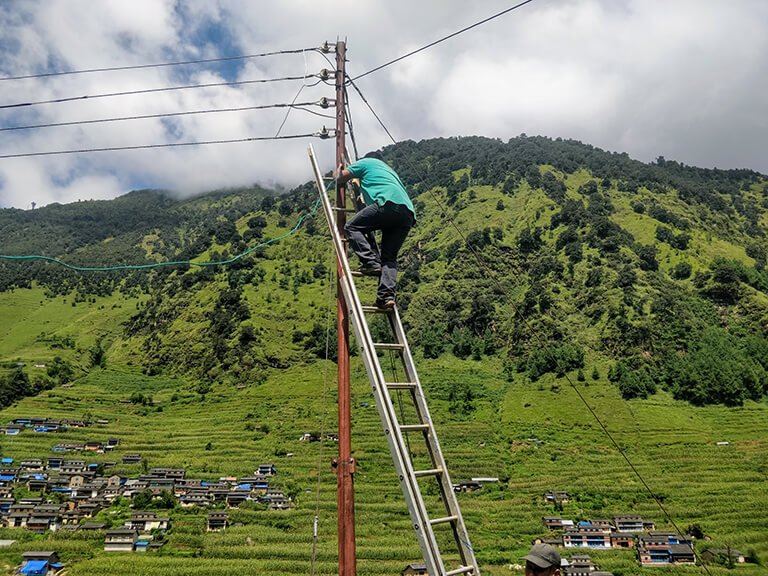While the whole world is threatened by the COVID-19 Pandemic we are forced to remain at our home, this situation positioned the internet as a basic need. When still half of the world doesn’t have access to the internet the community networks are playing a very important role in this period.
In my conversation with Mr. Gustaff …. From Common Room Networks Foundation, Indonesia shared that Community Networks have been very actively involved in channeling the information about COVID-19 to the indigenous communities of west Java. They have set up a local Intenet Infrastructure in two isolated villages aimed to support for communication and monitoring the situation of COVID-19 in the area. They are also providing public education material along with logistic support for the COVID-19 response team. They are also working to build another community network in one of the highest infected zones of COVID-19 Ciracap to establish internet connection for educational and economic empowerment of the people in that region which would also help them to recover from the pandemic situation. Along with these efforts, Community Networks are being used as an integral tool to fight the misinformation by circulating genuine information. With the main focus on decreasing the digital divide, they have prepared a guideline for ICT Rural Camp which focuses on building Community based Internet Infrastructure in rural areas. This guideline is aimed to help reduce the digital divide and empower the community during the period of a pandemic.
Another good takeaway about the role of Community Networks comes from India. Digital Empowerment Foundation (DEF) one of the pioneer organizations in the implementation of Community Networks in India. DEF came up with the COVID-19 Relief Program. DEF has launched ICT-Enabled and Community Specific Relief programs by mobilizing it’s 600+ digitally-enabled Information and Resource Centers, 10,000+ foot soldiers across 25 states across India. With its resources, DEF is helping to combat disinformation, spread information, and awareness, deliver telemedicine and telehealth services, helped to produce masks and sanitizers through online information sessions, provide information about government schemes. DEF has also come up with a “30 Days Digital Skilling Programme” in five most affected states of India which aims to identify 100 young migrant workers capable of adapting the digital skills who will further be involved in developing digital infrastructure and essential digital services in the rural communities.
In india Janastu Community Network which is a Mesh Wifi Network based radio staion is also playing a very significant role during the pandemic. They are building alternative resources to educationally empower students and resources for neighbourhood community to make them economically empowered. They are also translating information related to COVID-19 in their local language (kanada) and broadcast through their Mesh radio.
In Nepal Forum for Digital Equality, Internet Governance Institute and a a remote rural municipality are working together to set up a community network which aims to host a local content server that will host open source and creative commons licensed educational and other learning material. The contents of the local server will be served via the community network so that the people of neighborhood community would get access to those contents via their smartphone, laptops, computer or any other end device they acquire. For the people who doesn’t have any end device could reach out to the learning center equipped with laptops and desktops and access to the educational and learning materials.
A short video about the recent deployment of this network by Youth IGF Nepal vice-chair can be viewed below
Final Thoughts
Community Networks has served as a bridge not only to connect the unconnected but to empower people from rural communities by providing them a new door of possibilities. While we are in the way of achieving Sustainable Development Goals by 2030 Community networks has a major role to play in eradicating digital divide, empowering rural communities via reskilling and upskilling of digital literacy, connect rural schools and health centers and many more to count on. As we believe internet as the enabler of development Community Networks are the key to uplift the people who live in very remote corners of the world and deserve equal opportunity to be part of the digital globe.



